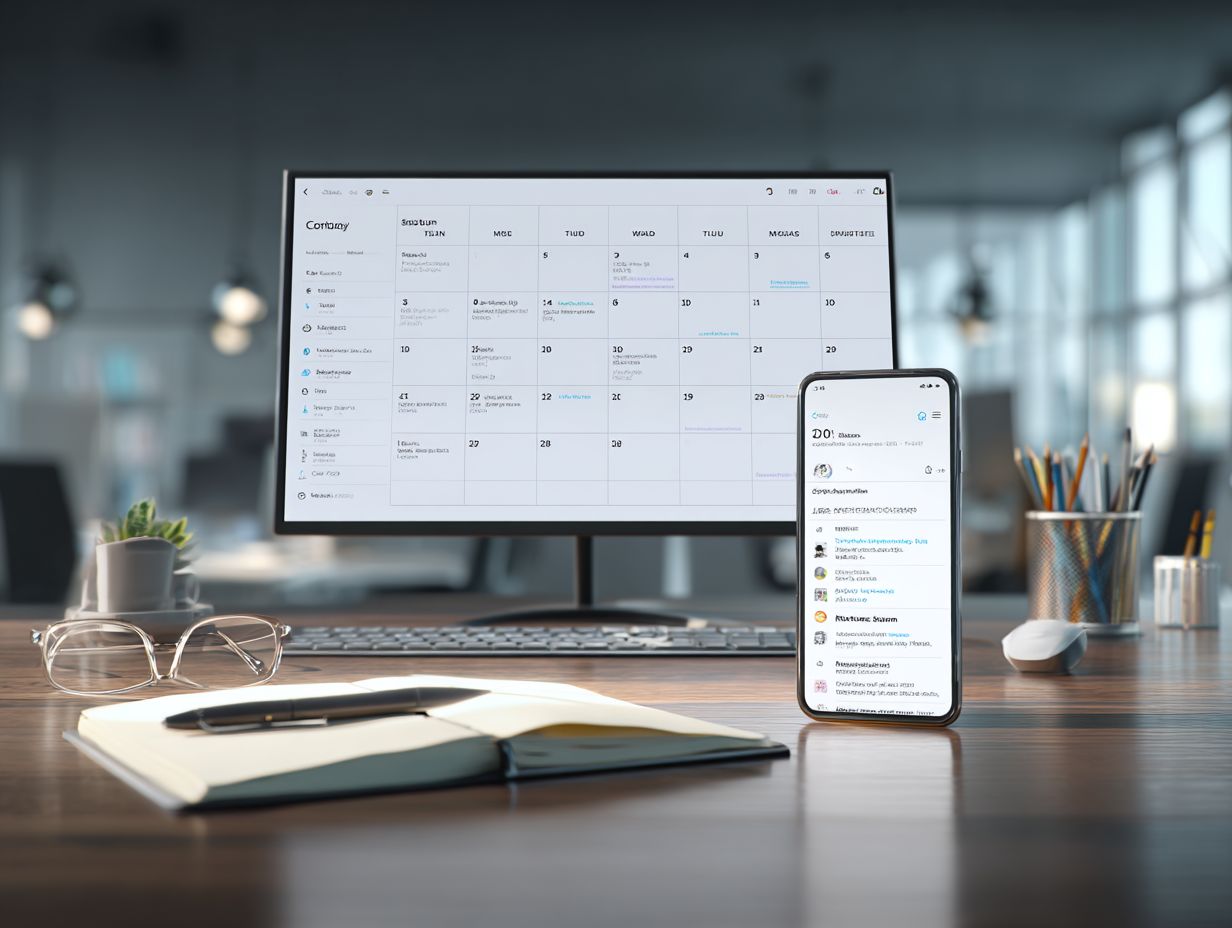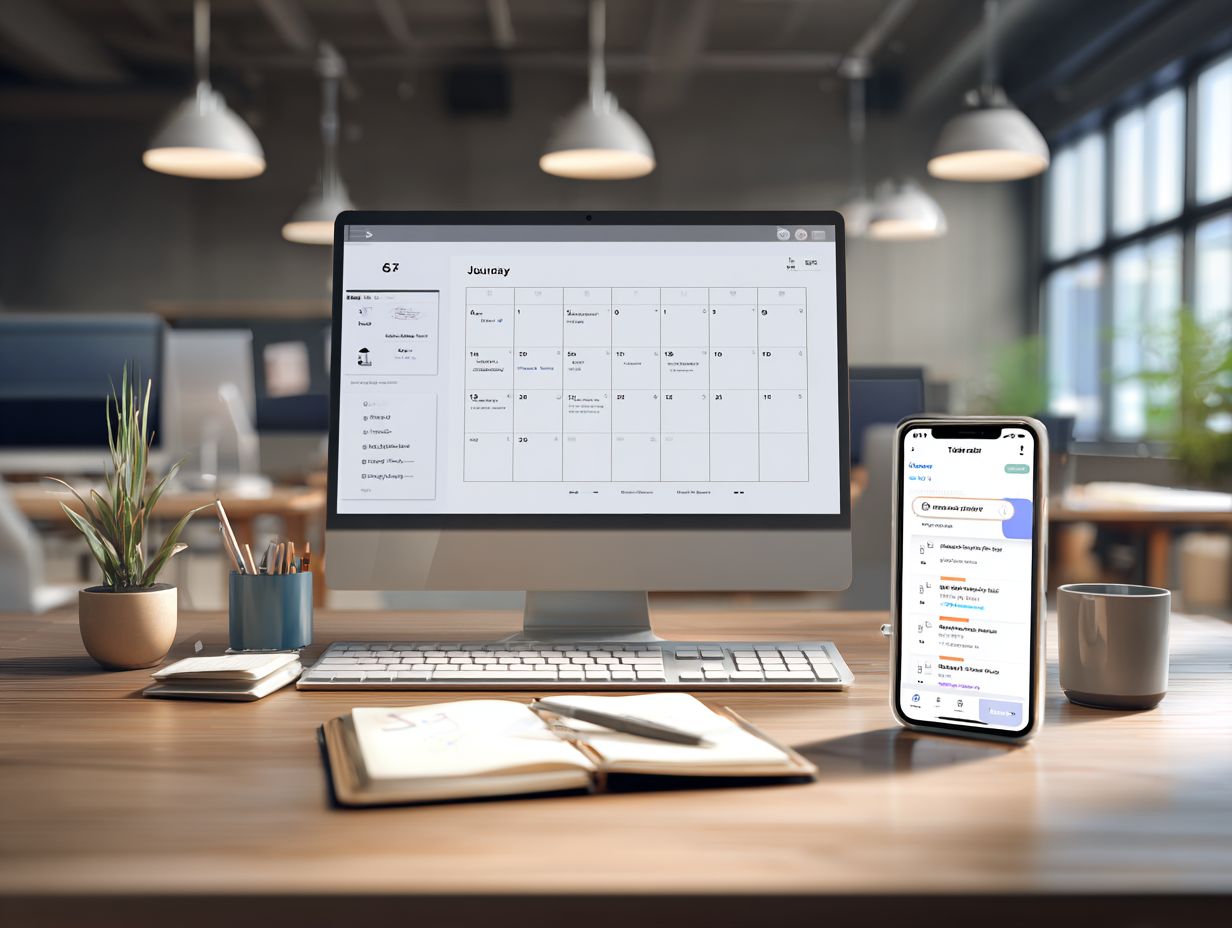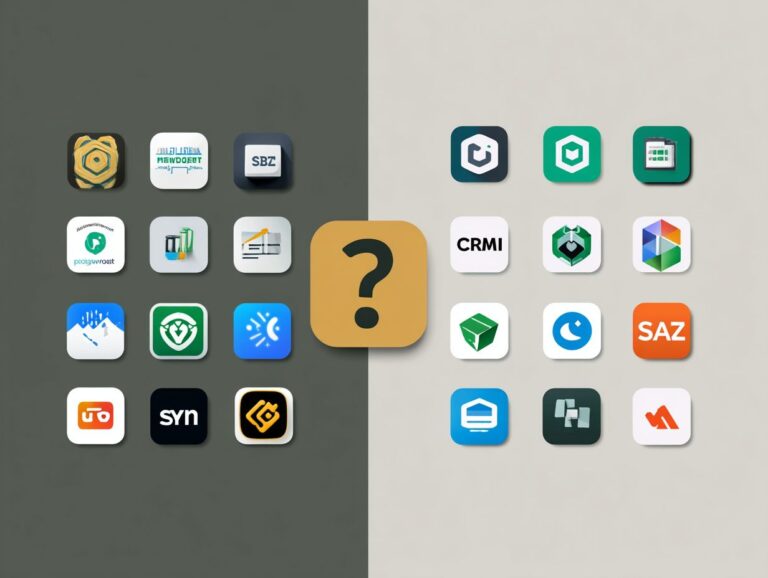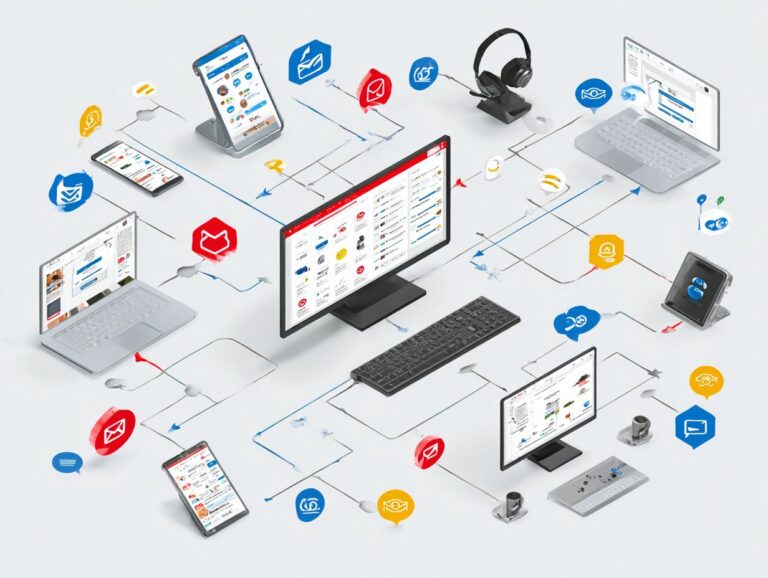Calendar Integration with CRM: Benefits and How It Works
Connecting your calendar with your CRM system can greatly increase sales productivity. By linking tools like Google Calendar with platforms like Fuzen, businesses improve time management and make client interactions more efficient. This article explains the many advantages of connecting calendars and how it improves your business operations. Find out how using these tools can change your work process and help your team succeed.
Key Takeaways:
- Improve time management by linking calendars with CRM systems, which results in increased productivity and better organization.
- Collaborate effectively with team members by sharing calendars and tasks, resulting in improved communication and teamwork.
- Simplify client interactions by syncing important dates and tasks between calendars and CRM, enhancing customer satisfaction and retention.
- Benefits of Calendar Integration
- How Calendar Integration Works
- Popular Calendar and CRM Tools
- Best Practices for Effective Integration
- Frequently Asked Questions
- 1. What is calendar integration with CRM?
- 2. What are the benefits of integrating a calendar with CRM?
- 3. How does calendar integration with CRM work?
- 4. Can I integrate multiple calendars with my CRM?
- 5. Will calendar integration with CRM work with my mobile device?
- 6. Is calendar integration with CRM secure?
1. Definition and Overview

Calendar integration means connecting digital calendars like Google Calendar or Outlook with CRM systems like Salesforce or Zoho to simplify managing tasks and scheduling. This integration enables users to automatically synchronize tasks and appointments, enhancing productivity.
You can use tools like Zapier to create tasks in Salesforce automatically whenever you add a new event to Google Calendar. This method prioritizes your schedule effectively by ensuring that critical tasks appear alongside your appointments.
Microsoft Power Automate allows users to set up custom alerts for approaching due dates, simplifying task management and tracking.
2. Importance in Business Operations
Integrating calendars helps sales teams by minimizing scheduling conflicts and managing tasks better across groups.
By utilizing tools like Calendly or Google Calendar Sync, businesses can reduce missed appointments by up to 30%. For instance, integrating Calendly allows clients to book meetings based on available time slots, minimizing back-and-forth communication.
Using a shared calendar for the team helps everyone know when others are free, making it easier to schedule and collaborate. Using these tools makes processes smoother and helps manage customer interactions better, increasing engagement and satisfaction.
Benefits of Calendar Integration
Linking calendars with CRM systems brings many advantages, greatly increasing productivity and improving client communication. Understanding the roles of cross-functional teams can further enhance these benefits, as highlighted in our discussion on the importance and roles in CRM integration.
1. Improved Time Management
Linking your calendar allows each worker to save up to 10 hours a month by automatically setting alerts and organizing all tasks in one spot.
Using tools like Calendly helps you schedule appointments without the need for multiple emails. Calendly automatically notifies both participants, which greatly lowers missed appointments.
Linking calendar apps with task management tools like Asana sends deadline alerts, helping projects stay organized.
Create scheduled tasks and notifications in Asana to help your team stay aware of approaching due dates, allowing work to be more structured and accountability to increase. This method makes scheduling easier and improves productivity in your organization.
2. Enhanced Team Collaboration
Sharing calendars helps teamwork by allowing everyone to view each other’s schedules and availability. Tools like Google Calendar and Microsoft Teams provide functions that simplify communication and organizing meetings.
For instance, Google Calendar allows users to create shared calendars, enabling the whole team to view each other’s availability in real-time. The group scheduling feature simplifies the process of finding common meeting times, minimizing back-and-forth emails.
Similarly, Microsoft Teams integrates calendar functionalities with chat and video conferencing, allowing for quick meetings and updates. By clearly sharing information and staying in touch, team members can better avoid clashes in schedules and work together smoothly.
3. Streamlined Client Interactions
Linking calendars for client meetings can increase customer satisfaction by 25% through timely follow-ups. To effectively implement this strategy, consider using solutions like HubSpot or Calendly for seamless scheduling. HubSpot lets you set up email alerts for client meetings, making sure they are sent on time.
Set specific intervals for follow-ups based on client interactions-perhaps a 24-hour reminder for an initial meeting and a weekly check-in on ongoing projects. By using these tools and methods, you build trust, showing clients they matter and improving their experience.
How Calendar Integration Works
Knowing how calendar integration functions is important for getting the most out of it in your business activities.
1. Connecting Calendar Apps with CRM

Connecting calendar applications like Google Calendar with CRM platforms such as Salesforce involves using built-in integration features or third-party tools like Zapier.
To initiate the connection, start with Zapier: create a new Zap, select Google Calendar as the trigger app, and specify your event (like a new event). Next, choose Salesforce as the action app, deciding what you want to happen (like creating a new lead).
After that, authorize both accounts and map the fields, such as event title and time to corresponding Salesforce lead fields. This process usually takes around 15 minutes, quickly aligning your calendar events with your CRM as they happen.
2. Data Synchronization Processes
Data synchronization between calendar apps and CRM systems allows for real-time updates, ensuring that scheduling changes reflect across platforms instantly.
To easily sync your tasks, try using tools like Zapier or Automate.io. With Zapier, you can set up a link to update your CRM whenever you plan an event in your calendar app. For instance, when a meeting is added in Google Calendar, it automatically creates a corresponding entry in Salesforce.
Set how often you want updates and select options like alerts or progress reports to make your work more efficient. This process typically requires less than an hour to set up and can save significant time on manual updates.
Popular Calendar and CRM Tools
There are many well-known calendar and CRM tools, each with specific features for connecting to other systems, meeting different business requirements.
1. Google Calendar and Salesforce
Linking Google Calendar with Salesforce gives clear details for managing sales processes and scheduling meetings.
By allowing automatic event creation in Salesforce directly from your Google Calendar, sales teams can eliminate manual entry and reduce errors.
For instance, when a meeting is scheduled in Google Calendar, an equivalent event can be generated in Salesforce, complete with attendee details and context.
To set this up, use tools like Zapier or the Salesforce AppExchange. These tools can typically sync within minutes, ensuring your sales data reflects real-time interactions and facilitating more efficient follow-ups, leading to a noticeable uplift in sales engagement.
2. Outlook Calendar and HubSpot
Integrating Outlook Calendar with HubSpot improves client engagement by allowing sales teams to coordinate their schedules more effectively.
By using the HubSpot integration, teams can automatically sync meetings and events between both platforms. This system keeps Outlook and HubSpot in sync, reducing the chances of missing appointments.
To set up this connection, go to your HubSpot settings, choose ‘Integrations,’ and link your Outlook account. Once linked, use the ‘Meetings’ tool in HubSpot to make scheduling appointments easier directly from your calendar. This smooth link improves visibility and helps your team quickly address client needs, building stronger relationships.
Best Practices for Effective Integration
Using established ways to link calendars helps businesses operate smoothly and maintain strong customer connections.
1. Choosing the Right Tools
Choosing the right tools for calendar integration is critical, with options ranging from full-featured CRM systems like Salesforce to mobile-friendly solutions like Upsurge CRM. When selecting an integration tool, consider user-friendliness, the ability to customize features, and cost.
For example, Salesforce offers extensive customization options but can be complex and costly, while Upsurge CRM provides a sleek mobile interface that simplifies daily scheduling but lacks advanced features.
Zoho CRM strikes a balance between usability and functionality with a competitive price point. Trying out free versions of these tools can help determine which ones work best for your team and improve efficiency.
2. Regular Maintenance and Updates

Regularly updating and maintaining software connections can help avoid data loss and keep all features working properly with current technology. To keep your integrations running smoothly, schedule quarterly reviews of your systems.
Start by checking websites like Zapier or Microsoft Power Automate for software updates, as they regularly release new versions.
Run tests to check if data moves correctly between connected apps. Use tools like Postman for API testing to find and fix any problems. Write down any changes during these reviews to keep a clear record, which will make fixing problems later simpler and faster.
3. Future Trends in Calendar Integration
Upcoming trends show a move toward AI-driven tools that improve task automation and involve users more in calendar connections.
Tools like Clockwise and x.ai are leading this charge, automating meeting scheduling by analyzing participants’ calendars and preferences. These AI helpers change schedules to find the best meeting times, reducing a lot of admin work hours.
Predictive analytics tools such as Salesforce Einstein enable sales teams to forecast performance and prioritize leads based on historical data and trends. By using these technologies, businesses can operate better, simplify communication, and help the team work more effectively. If interested, our collection of articles offers deeper insights into AI-driven productivity tools and their impact on modern workflows.
Frequently Asked Questions
1. What is calendar integration with CRM?
Calendar integration with CRM is the process of connecting a customer relationship management system with someone’s personal or work calendar to keep them in sync. This allows for automatic updates and notifications between the two systems, providing a seamless experience for the user.
2. What are the benefits of integrating a calendar with CRM?
Some advantages of linking your calendar with CRM are it makes work more efficient, helps keep tasks and appointments organized, and ensures the data in the CRM is correct. It also allows for better collaboration and communication within a team or organization.
3. How does calendar integration with CRM work?
Calendar integration with CRM works by connecting the two systems through APIs or other integration tools. This lets data be exchanged and synced between the two systems, making sure all information stays current and correct.
4. Can I integrate multiple calendars with my CRM?
Yes, most CRM systems allow for integration with multiple calendars, such as Google Calendar, Microsoft Outlook, and Apple Calendar. This makes it easy to see all tasks and appointments in one place.
5. Will calendar integration with CRM work with my mobile device?
Yes, most CRM systems offer mobile apps that are compatible with calendar integration. This lets everyone get the latest information wherever they are, so all team members have the same details even if they are in different places.
6. Is calendar integration with CRM secure?
Yes, calendar integration with CRM is typically secure and follows strict data protection protocols. However, it’s important to pick a trustworthy CRM provider and make sure strong security measures are used to protect sensitive information.






